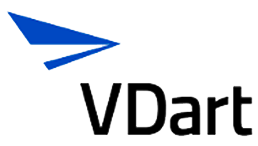
Tuvok (Star Trek: Voyager)
About Daksha
IIM Trichy is hosting its first ever Leadership Conclave on 24th September, 2022. The event aims to create a platform where eminent industry leaders share their knowledge and experience pertaining to “Resilience and Adaptation - Organizational Resilience in the Post-Pandemic World”. The Conclave will also provide a common stage for leaders to interact and exchange their experiences and practices.
The impact of the pandemic has emphasized the importance of contingency planning to achieving strategic flexibility. The pandemic has also underlined the digitalization of key value chain functions as a competitive necessity irrespective of the nature of the industry and the tradition of its activities.
It has called into question firm boundaries, our traditional notion of core competencies, and our limited definition of product markets and market opportunities.
The key aspect that separates firms that managed the pandemic better to those that didn’t is resilience. Organizational Resilience, defined as “the ability of an organization to anticipate, prepare for, respond and adapt to incremental change and sudden disruptions in order to survive and prosper”, has become a necessary capability can drive firm performance in these uncertain times. This conclave aims to bring together eminent industry experts representing a variety of industries and provide them a platform to share
Event Schedule
-
10:00 AM - 11:15 AM
Inauguration
-
11:30 AM - 12:45 PM
Panel Discussion
-
2:15 PM - 3:30 PM
Panel Discussion
-
4:00 PM - 5:15 PM
Round Table Discussions
-
5:30 PM - 6:15 PM
Valedictory
-
6:15 PM onwards
Meet & Greet
Panel Discussions
Panel Discussions with C-suite leaders from various industries across the country to gain insights from their experiences. The discussion will be followed by a Q&A session.
Building Resilience for Competitive Success
This panel discussion, that is closely aligned with the theme of the conclave, looks to understand how firms build and leverage resilience for organizational success. The questions that would be explored as part of this panel discussion include; how do firms understand resilience? How do they define it? How do they conceptualize it? Is resilience a capability, process or an outcome? What conditions need to exist for development of organizational resilience? How can firms leverage resilience to anticipate future events? How can firms leverage resilience as a coping mechanism against external shocks? How can firms leverage resilience to adapt and bounce back from crises?
Decoding Growth Potential through Sustainable Initiative
In the modern world, the focus of businesses has witnessed a shift from mere growth achievement to innovative growth attained through sustainable practices and initiatives. Environmental, Social and Governance (ESG) initiatives continue to gain momentum from organizations across sectors. These initiatives are driven by strategies that aim to achieve growth along with a cleaner, greener, humane and transparent future. This mission has the potential to fuel exemplary growth and make this world a better place to live. The panel discussion aims to seek answers to the aspects like, how strong is the business case for sustainable initiatives? Or do we need a business case? What specific steps can be taken to address the multiple dimensions of sustainability (people, planet, profit and purpose)? how do organizations transform themselves and gain the engagement and commitment from all parts of the organization towards sustainable initiatives? Will sustainable initiatives increase organizational resilience?
Meet & Greet
This meet-and-greet is an open house interaction session where speakers and the audience connect and converse informally and share their thoughts with each other.
Round Table Discussions
Focused discussions with industry experts who deep-dive into the particular topics while engaging with the audience through Q&A
Resilient Supply Chains: The need of the hour
Resilient supply chains are not merely risk-free supply chains. Supply Chain Resilience is the ability of these networks to withstand, adapt and recover from disruptions to not only meet customer demand but also deliver value to all stakeholders. Global supply chains are characterized by swiftly changing market trends, dynamic competitive forces, and altering consumer demands. With macro-economic shocks like the COVID-19 and Russia-Ukraine War adding to this complexity, it is the need of the hour for supply chains to become more resilient than ever. It is also the need of the hour for practitioners and academics to understand the nuances of resilient supply chains and explore innovative solutions to the complex problems that affect supply chains. When should a firm decide to change its supply chain strategy? What innovative solutions have companies applied to make their supply chains more resilient? Is there any standard formula to make the supply chains more resilient?
Building Resilience through Adaptation
Behavioral and attitudinal changes by individuals or organizations have been in place since time immemorial. Their objective is to adapt themselves to the ever-changing, dynamic needs of the external world. As organizations and humans evolve, it becomes imperative to internalize and institutionalize necessary modifications to achieve sustainable development. Ever since the pandemic, the concept of resilience has been widely embraced by organizations worldwide. The pandemic is one of the disruptions in the VUCA world which has taught us to be agile, adaptive, and resilient to successfully overcome crises. This paradigm shift concerning humans' and organizations' behavioral adaptation in the face of adversity will give organizations a sustainable competitive edge over their rivals.
Redefining Customer Value in the Next Normal
At the beginning of the pandemic, consumers faced perpetual uncertainty that led to a shift in priorities and opened avenues for the online transition of several activities. This shift led to the transformation of many services that could provide the consumer with comfort in the backdrop of this uncertainty and the adoption of "everything digital" - shopping, payments, entertainment, and the like. Ultimately, one must lay bets on shifting the attention to innovation rather than just serving the current target segment. How customers define value is changing, so businesses must find creative ways to bridge the gap between their expectations and the company's offerings. What challenges would firms face while designing, creating, delivering and communicating customer value in this era? Could we anticipate the implications of the new normal with the highest impact? How urgent is it for businesses to assimilate these changes? Is customer centricity sufficient? Why and why not? What is the importance of digital marketing in creating customer value in the next normal?
Corporate Resilience and stock performance during Pandemic
Any catastrophe whether man-made or natural brings chaos and disturbances in the economy sometimes limited to a country and sometimes beyond the borders. Most of the crises in the past, even though they brought dips in economic activities, happened gradually. The deterioration in economic activities and stock market returns happened slowly over months as compared to a sudden dip in economic activity because of lockdowns announced in many countries. The cause and scale of the crisis has motivated us to look into the factors shaping the response of firms and individuals across the globe to the Covid-19 crisis. Most of the world indices nosedived within a month of their first recorded case of Covid-19. The last week of March 2020, witnessed the bottom of most of these indices. In this context, it is interesting to examine the characteristics of resilient companies around the COVID led market crisis. We could consider those companies as resilient which showed either lesser decline or faster recovery when the market indexes bounced back from their lows in the last week of March 2020.
Entrepreneurship, Adaptation and Resilience
“Change is the only constant”, is a cliché but it is also an undeniable truth. The need to adapt to constant change is amplified in early-stage organizations (start-ups). This round table discussion seeks to have an engaging discussion amongst founders and key management personnel of start-ups around them of “Entrepreneurship, adaptation and resilience”. We will engage the discussion with the questions like and not limited to, how do start-ups, which are resource constrained by design, adapt to unexpected environmental shocks? An oft-repeated mantra for successful adaptation in start-ups is ‘to pivot’ in response to customer needs. How do entrepreneurs decide when to pivot and when to persevere? Is there an inherent tension between pivoting to respond to customer needs and entrepreneurial passion which set off the venture in the first place? Are there boundaries to pivoting? How do start-ups know how much to pivot? How do entrepreneurs manage the pivoting process vis-à-vis multiple stakeholders? As start-ups scale, they face the adaptation challenge again – this time to adapt themselves to the ways of large mature organizations which are built for simultaneous balancing of efficiency and effectiveness. How do entrepreneurs manage this transition? Entrepreneurship is riddled with uncertainty and failures. What are the reservoirs of organizational and individual resilience that entrepreneurs draw from in the face of setbacks?
Speakers
Conclave Moderators
In Collaboration With

Contact Us
Registrations
Anwesha Pal
9433680107
Pragnya Koya
9581812828
Swathi C
9944771499
Alumni
Rajat Agrawal
9676775089
Rhea Martha Benny
9999598159
Vihari Andukuri
7559333943
Partnerships
Mallika Gupta
9149392440
Sreenandini Prasad J
8089089489
Queries
Kushal Khurana
9867283011
Thejashwini M
9840059577







































































